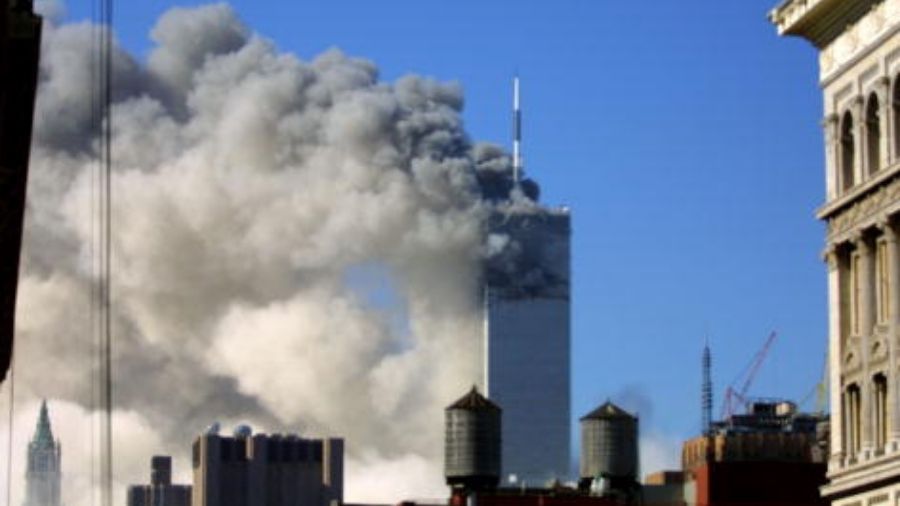It may seem like a terrible thing to say, but a fair number of people — especially in the news media — are nostalgic about the months that followed 9/11. Some pundits openly pine for the sense of national unity that, they imagine, prevailed in the aftermath of the terrorist attack. More subtly, my sense is that many long for the days when the big threat to America seemed to come from foreign fanatics, not homegrown political extremists.
But that golden moment of unity never existed; it’s a myth, one that we need to stop perpetuating if we want to understand the dire current state of American democracy. The truth is that key parts of the American body politic saw 9/11, right from the beginning, not as a moment to seek national unity but as an opportunity to seize domestic political advantage.
And this cynicism in the face of the horror tells us that even at a time when America truly was under external attack, the biggest dangers we faced were already internal.
The Republican Party wasn’t yet full-on authoritarian, but it was willing to do whatever it took to get what it wanted, and disdainful of the legitimacy of its opposition. That is, we were well along on the road to the Jan. 6 putsch — and toward a GOP that has, in effect, endorsed that putsch and seems all too likely to try one again.
It’s now a matter of public record that the immediate response of Bush administration officials to 9/11 was to use it as an excuse for an unrelated project, the invasion of Iraq. “Sweep it all up, things related and not,” Defense Secretary Donald Rumsfeld said to his aides while the Pentagon was still burning.
And some media organizations did eventually acknowledge their role in helping war advocates exploit the atrocity. The New York Times, in particular, published an extensive and frank mea culpa.
Yet the exploitation of 9/11 by people who wanted a wider war — and the selling of that war on false pretenses, which should have been considered an unforgivable abuse of public trust — has faded from public discourse. And you hear hardly anything about the parallel way in which terrorism was exploited for domestic political goals.
When the nation is threatened, we normally expect our leaders to call for shared sacrifice. But leading Republicans responded to a terrorist attack by trying to enact … tax cuts for the wealthy and corporations. Indeed, the chair of the House Ways and Means Committee tried to ram through a cut in the tax rate on capital gains less than 48 hours after the twin towers came down.
Later Tom DeLay, the House majority whip, would declare, “Nothing is more important in a time of war than cutting taxes.”
And in May 2003 Republicans exploited the illusion of success in Iraq by pushing through sharp cuts in tax rates on capital gains and dividends.
Let’s also not forget how the occupation of Iraq was handled. Nation-building is an immensely difficult project, one that should have drawn on the most talented and qualified people America had to offer. Instead, the Bush administration treated the occupation as a patronage opportunity, a way to reward political loyalists; some prospective hires were asked their views on Roe v. Wade, others how they voted in 2000.
In short, by the time the terrorists struck, the GOP was no longer a normal political party, one that considered itself only a temporary custodian of broader national interests. It was already willing to do things that would previously have been considered inconceivable.
In 2003, I declared that the Republican Party was dominated by “a movement whose leaders do not accept the legitimacy of our current political system.” But many people didn’t want to hear it. Those of us who tried to point out the abuses in real time were dismissed as “shrill” and “alarmist.”
The alarmists have, however, been right every step of the way.
True, in the past there were a few mitigating factors. To his credit, President George W. Bush tried to tamp down the anti-Muslim backlash, visiting an Islamic center just six days after the attack and calling on Americans to respect all religions. Try to imagine Donald Trump doing something similar.
It’s also notable that some of the most prominent neocons — intellectuals who promoted the invasion of Iraq and called for an even wider set of wars — eventually became eloquent, even courageous Never Trumpers. This suggests that their belief in spreading democratic values was genuine even if the methods they advocated — and the political alliances they chose to make — had catastrophic results.
But it’s not an accident that Republicans today have left both tolerance and respect for democracy behind. Where we are now, with democracy hanging by a thread, is where we had been heading for a long time.
America was viciously attacked 20 years ago. But even then, the call that mattered was coming from inside the house. The real threat to all this nation stands for is coming not from foreign suicide bombers but from our own right wing.
New York Times News Service











